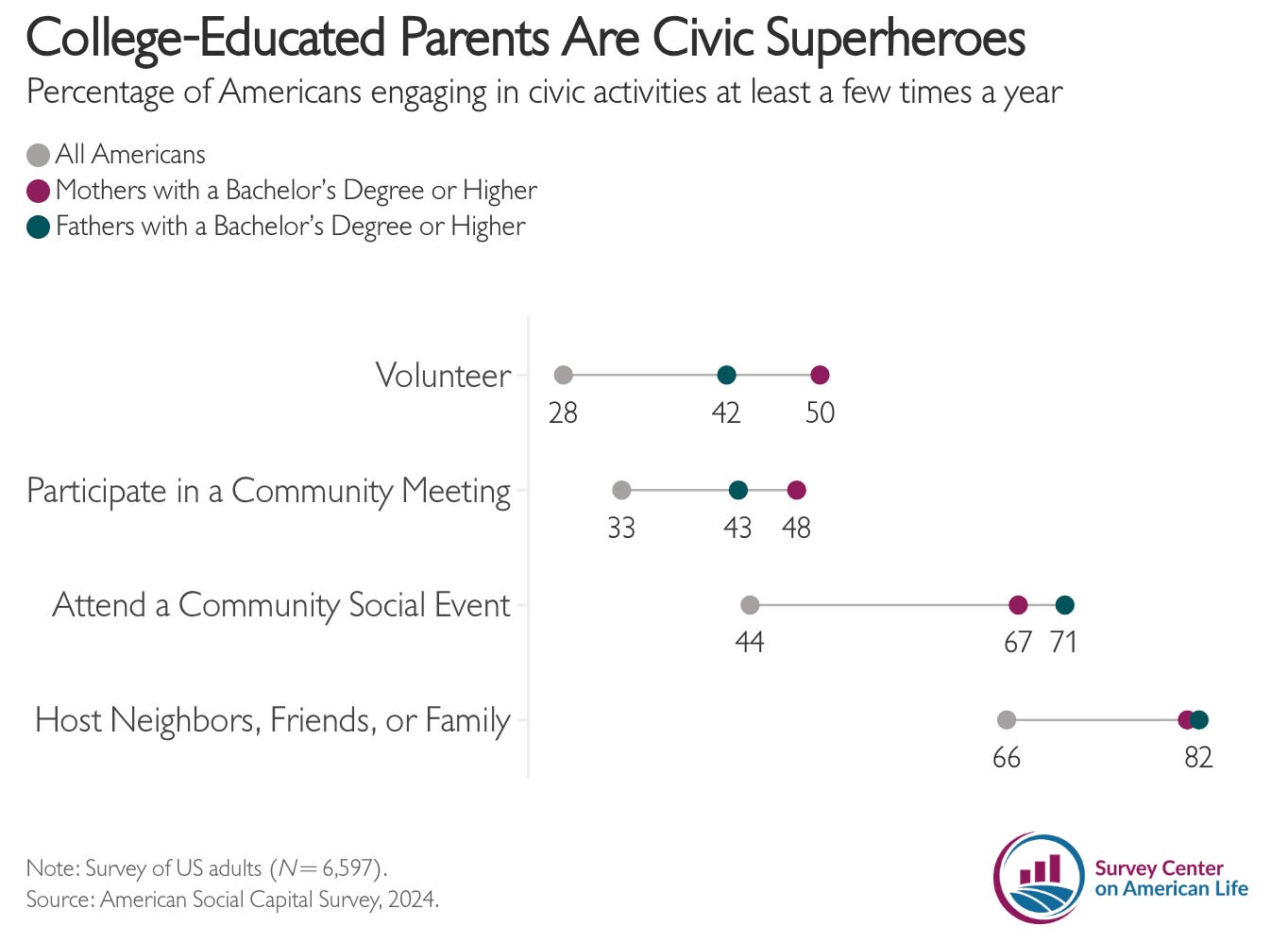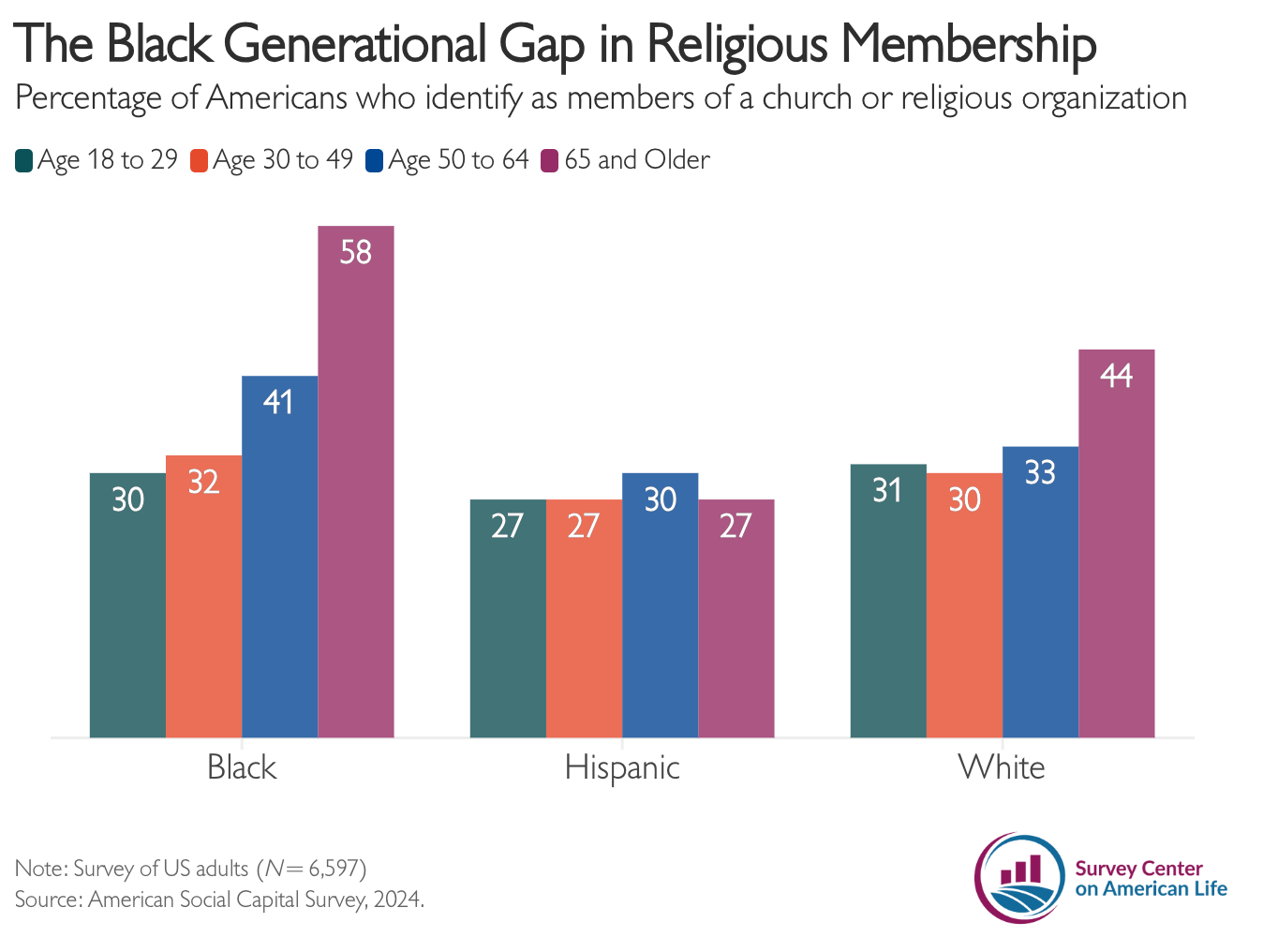Modern Icons of American Manhood
Profiles of founders, the power of institutions, the growing class divide and more in this week's roundup
A reminder that those of you in the Chicago area can come see me speak at the Touchstone Conference, September 26-28.
What I’m reading: Next American Nation by Michael Lind
Modern Icons of American Manhood
A couple of recent articles profiled two very interesting and colorful men who’ve accomplished incredible things so far in their lives. One is is a Tablet profile of Palmer Luckey. At age 31, Luckey has already founded the VR firm Oculus, selling it to Facebook for $2 billion, and an even higher valued defense tech startup called Anduril. Luckey was famously fired from Facebook because he was a supporter of Donald Trump.
Let me show you: Luckey is the owner of the world’s largest video game collection, which he keeps buried 200 feet underground in a decommissioned U.S. Air Force nuclear missile base—which is the kind of thing a man can afford to buy when he single-handedly turns virtual reality from the laughingstock of the technology industry into a multi-billion-dollar enterprise by inventing the Oculus Rift in a camper trailer parked in the driveway of his parents’ duplex in Long Beach, California, where at 19 years old he lived alone and survived on frozen burritos and Mucho Mango AriZona tea.
Or: After selling Oculus to Facebook for $2.7 billion and then getting fired by Mark Zuckerberg for making a $10,000 donation to a pro-Trump troll group dedicated to “shitposting in real life,” Luckey tried his hand at building a nonprofit private prison chain that only gets paid when ex-prisoners stay out of prison. After he decided that would require too much lobbying work, he attempted to solve the obesity epidemic by making food out of petroleum products centrifuged out of the sewer system—a perfectly delicious and low-calorie idea, he maintains, which he only ditched because of the “marketing nightmare” of persuading people to eat remanufactured sewage. In the end, he decided instead to found Anduril Industries, a defense technology startup that makes lethal autonomous weapons systems. It is now valued at $14 billion.
Another: In his spare time, when he is not providing U.S. Customs and Border Patrol with AI-powered long-range sensors, or Volodymyr Zelenskyy with drones to attack high-value Russian targets, or winning first place in the Texas Renaissance Festival’s costume contest with historically meticulous renderings of Henry VIII and Anne Boleyn sewn and stitched by his wife, Nicole—who’s been at his side for 16 of his 31 years on earth—Luckey recently built a bypass for his peripheral nervous system to experiment with giving himself superhuman reflexes; vestibular implants to pipe sounds into his skull so that instead of having to call him and wait for him to pick up, Anduril employees could just pick up a designated Palmer Phone and talk straight into his head; and a virtual reality headset that—by tying three explosive charges to a narrow-band photosensor that can detect when the screen flashes red at a specific frequency (i.e., GAME OVER)—kills you in real life when you die in a video game.
He’s a character to say the least - and an incredibly successful one. He’s an example of what I’m talking about when I say that in some ways, there’s never been a better time to be a man.
One thing we see in the profile is that Luckey benefitted from a “black swan” type event when a famous video game personality reached out asking to get one of his headsets. Luckey was able to seize and maximize that opportunity.
In April 2012, he received an email asking to buy or borrow one of his prototypes from John Carmack—the inventor of 3D computer games, creator of some of the greatest games ever made like Doom and Quake, and one of the 10 best computer programmers maybe of all time. Carmack discovered Luckey in the comments section of a VR enthusiast website called VR-tifacts, where another user had posted about some interesting sounding things being done by a hardware hacker who went by the name of “PalmerTech.”
Luckey couldn’t mail his prototype to Carmack fast enough, free of charge. The next month, Carmack—known to his legions of devoted followers as Carmack the Magnificent—tweeted that Palmer Luckey’s Rift was “a completely different situation” that “blows everything else out of the water.” In June 2012, at E3, then the largest trade show in the video game industry, Carmack demonstrated the Rift, telling the heaving crowds of frothing reporters, developers, and gamers that it was “probably the best VR demo the world has ever seen.” The tech press went ballistic.
Click over to read the whole thing. It’s too long, but fascinating.
The other story is an NYT style profile of Alex Karp, co-founder and CEO of Palantir.
Alex Karp never learned to drive. “I was too poor,” he said. “And then I was too rich.”
In fact, Mr. Karp, a co-founder and the C.E.O. of Palantir Technologies, the mysterious and powerful data analytics firm, doesn’t trust himself to drive. Or ride a bike. Or ski downhill.
…
The 56-year-old is perfectly happy hanging out in a remote woodsy meadow alone — except for his Norwegian ski instructor, his Swiss-Portuguese chef, his Austrian assistant, his American shooting instructor and his bodyguards. (Mr. Karp, who has never married, once complained that bodyguards crimp your ability to flirt.)
…
After graduating from Haverford College, Mr. Karp went to Stanford Law School, which he called “the worst three years of my adult life.” He wasn’t interested in his classmates’ obsession with landing prestigious jobs at top law firms. “I learned at law school that I cannot do something I do not believe in,” he said, “even if it’s just turning a wrench.”
He met Mr. Thiel, a fellow student, and they immediately hit it off, trash-talking law school and, over beers, debating socialism vs. capitalism. “We argued like feral animals,” Mr. Karp told Michael Steinberger in a New York Times Magazine piece.
…
Mr. Karp received his doctorate in neoclassical social theory from Goethe University Frankfurt. He reconnected with Mr. Thiel in 2002, while working at the Jewish Philanthropy Partnership in San Francisco. The two began doing “vague brainstorming,” as Mr. Thiel put it, about a business they could start. Mr. Thiel thought he could figure out how to find terrorists by using some of the paradigms developed at PayPal, which he helped found, to uncover patterns of fraud.
Click over to read the whole thing.
One thing we see here is the power of relationships. Karp met Peter Thiel in law school, and was able to build and sustain that relationships for the long term. This paid dividends to say the least. It also shows the power of elite institutions. They met at Stanford Law School. Had Karp gone to the law school at State U, he would never have met Thiel.
The most important thing about elite institutions like colleges is the relationships and social milieux they grant access to. So long as that remains the case, it will be very difficult to disintermediate them or see them fall in importance.
Both Luckey and Karp are also people who don’t fit into the standard mold to say the least.
It’s good to read biographies about the great men of history for information, but also quite interesting and inspiring to read about those achieving great things today.
Although not a story about a man of today, David Brooks wrote a nice column about writer Tom Wolfe that’s also worth checking out.
On the Value of Institutions
Speaking of elite institutions, NY Magazine had an interesting profile of New York Times columnist Ezra Klein. This nugget caught my eye:
He considered going another route: selling his podcast to Spotify, starting a Substack. “I sometimes feel like a dumbass who’s left a ton of money on the table,” he admits. But he likes being part of institutions and seems, in a vaguely messianic way, to see it as his duty to support them. “It’s true that I could make more money doing this independently, but if all the people who do what I do decide to go and capture all of their revenue themselves, then what happens to all the parts of the industry that are frankly more important than what I do, but are not self-sustaining in that way?” he says, citing investigative and foreign reporting among the beats that haven’t quite figured out the newsletter format. It seems to be a mutually beneficial relationship: “The Times is a unique power,” he says. “If I had done the same pieces from Substack, would it have mattered?”
It’s interesting to contrast Klein’s path with that of his Vox co-founder Matt Yglesias. Yglesias is one of the most successful and influential Substack writers. If he writes a piece on Substack, it definitely has influence. And he’s making a ton of money from it. But Klein has leveraged his Times perch into superstar status and a top 10 podcast. This will allow him to cash in whenever he wants, while providing a level of prestige and influence that’s at another level.
Although there are serious problems with our institutions today, the leverage they can provide is undeniable.
Class Divides and Social Capital
AEI’s Survey Center on American Life is out with another good but depressing report on the gap in social capital and participation in civic life between people with college degrees and people without college degrees. This is something we already knew, but this provides additional perspectives on it.
People with college degrees are more likely to spend time in public spaces, have more places to gather with neighbors and friends, are more likely to be involved in community groups like hobbyist clubs, and are more likely to be civically engaged. Here’s an example of one of their charts, this one regarding civic engagement.
Because of class sorting in America, people with college degrees often live in areas where there are very high shares of people with degrees, which means those places are greatly advantaged in terms of social capital.
About 75% of the adults in the city where I live have college degrees, and it has an very vibrant civic life. It’s rational for people to choose to live in these places, but it does fuel our class divide in society.
One of the findings that was of particular interest to me is the rapid fall in the share of black Americans who are members of a religious congregation.
That’s definitely not a good trend.
There are many other good graphs in this report, so check it out.
A Conservative Positive Governance Vision
I have a new piece over at American Compass arguing that conservatives need a positive governing vision, not just a desire to shrink the size of government.
When Ronald Reagan said, “the nine most terrifying words in the English language are ‘I’m from the government, and I’m here to help,’” he articulated perhaps the core Republican philosophy of governance. It’s a negative philosophy, one based on what government shouldn’t do rather than what it should.
..
While there’s some virtue in this negative approach, American conservatism and the Republican Party are in desperate need of a positive governance vision to complement it. They need to be able not just to tell voters what they won’t do, but what they will do to address the very serious problems facing our country. Three timely and addressable issues come to mind: health care, energy, and defense production.
I talk specifically about the need to have a program to address challenges in three example areas: health care, our electricity system, and defense production. Click over to read the whole thing.
Best of the Web
The Atlantic: Young Men Have Invented a New Way to Defeat Themselves
The Free Press: The Young Catholic Women Bringing Back Veils
NYT: Families Are Going Into Debt for Disney Vacations - I actually think it can be ok to stretch in order to give your kids one trip to Disney.
Mere Orthodoxy: Faithful Presence After the Evangelical Fracturing
New Content and Media Mentions
I was a guest this week on the Issues, Etc. podcast, the American Compass podcast, and Matt Carpenter’s podcast.
I was mentioned in the European Conservative and by Rod Dreher.
New this week:
My podcast this week was with Jon Tyson of Church of the City in New York. It was a fascinating conversation about what’s different in NYC post-Covid, and also what’s new with Generation Z. His church is 80% Generation Z
I also wrote about why men need to start paying less attention to women.
And my American Compass piece noted above on the need for a conservative positive governing vision.
Subscribe to my podcast on Apple Podcasts, Youtube, or Spotify.
Cover photo: Palmer Luckey by Stephen McCarthy, CC BY 2.0







What’s interesting is that, unlike white voters, black voters who don’t go to church are actually more likely to vote Republican. Many black churches serve as organizing spaces for Democratic machine politics, so people outside this machine don’t feel the same pressure to vote Democrat.
I’d understand parents going into some debt to take their kids to the US National Parks, Hawaii, the Rockies or somewhere like Southern California if the family lives in say Ohio.
I don’t understand the fascination with Disney theme parks. Can anyone explain the Disney appeal?